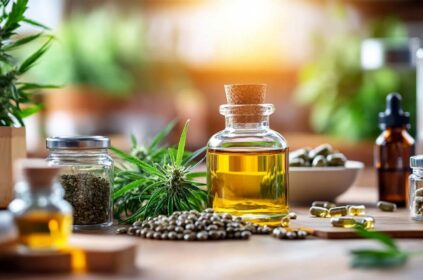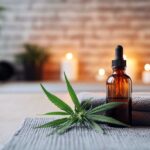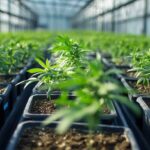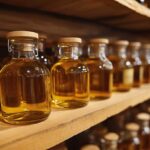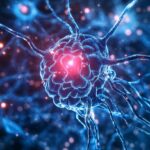Introduction to CBD and Addiction Recovery
In the fight against substance use disorders, a growing interest surrounds cannabidiol, or CBD, a non-psychoactive compound derived from the cannabis plant. As researchers explore its possibilities, preliminary findings paint a promising picture of CBD as an adjunctive therapy in addiction recovery. This guide offers an in-depth look at CBD’s potential benefits, mechanisms of action, and the current research landscape.
What is CBD?
CBD, or cannabidiol, is one of over a hundred naturally occurring cannabinoids found in cannabis. Unlike its well-known counterpart tetrahydrocannabinol (THC), CBD does not produce psychoactive effects, making it a preferred choice for those seeking therapeutic benefits without the typical “high” associated with marijuana. Instead, CBD interacts with the body’s endocannabinoid system, which plays a vital role in regulating various physiological processes, including mood, pain perception, and stress.
Therapeutic Properties of CBD in Addiction Recovery
Reducing Cravings and Withdrawal Symptoms
Understanding addiction often involves delving into the psychological battle of cravings and withdrawal. Research suggests that CBD may significantly reduce these cravings and alleviate withdrawal symptoms. For instance, a study involving individuals with opioid use disorder found that CBD substantially decreased cue-induced cravings and anxiety, effects observed to last a few days post-administration.
Moreover, CBD appears to influence the brain’s reward system. For opioid addiction, it has been shown to diminish the rewarding sensations typically associated with opioids, thereby reducing the likelihood of relapse. The interaction between CBD and the brain’s neurotransmitter systems can thus play a crucial role in managing addiction.
Anxiety and Stress Relief
The journey of recovery can often be steeped in anxiety and stress. This is where CBD shines, exhibiting anxiolytic properties that may help ease these burdens. By interacting with the endocannabinoid system, CBD contributes to emotional balance, enhancing overall psychological stability. This relief not only helps during the withdrawal phase but also supports long-term emotional well-being.
Pain Management
Chronic pain often intertwines with addiction, leading some individuals to seek relief through substance use. CBD’s analgesic properties can potentially minimize pain without the risks associated with opioid medications, providing a safer alternative for individuals navigating recovery. By addressing pain, CBD can help reduce the likelihood of falling back into substance use for temporary relief.
Improved Sleep
Restorative sleep is paramount in any recovery process. CBD has garnered attention for its ability to promote better sleep patterns, a vital component for achieving both physical and emotional well-being. Anxiety and intrusive thoughts can hinder sleep, but as CBD eases these factors, it can enhance sleep quality, ultimately contributing to a more balanced recovery process.
Neuroprotection and Cognitive Function
Substance use can inflict significant damage on brain function and structure. Here, CBD’s neuroprotective properties emerge as an intriguing asset. Studies suggest that CBD has the potential to reduce inflammation and oxidative stress within the brain, aiding in the preservation and restoration of cognitive functions. This can improve mental clarity, which is often compromised by substance abuse.
Specific Applications of CBD in Different Addictions
Different substances often require different approaches in treatment. Here’s a closer look at how CBD can be specifically applied to different types of substance use disorders:
Opioid Addiction
Opioid addiction is a pressing public health crisis. Preliminary research indicates that CBD may help modulate the brain’s reward pathways, substantially diminishing the rewarding aspects of opioids. Studies highlight CBD’s ability to reduce drug-seeking behaviors triggered by cues in the environment, suggesting a multifaceted role in decreasing both dependency and the risk of relapse.
Cannabis Addiction
Interestingly, CBD also shows promise in addressing cannabis addiction. Early studies indicate that it can mitigate withdrawal symptoms and reduce the reinforcing effects of cannabis. For those who have developed dependence on cannabis, CBD may help ease the transition to recovery.
Alcohol Addiction
With alcohol being a commonly abused substance, CBD’s neuroprotective qualities take center stage. Research has shown that CBD may help combat alcohol-related neurodegeneration, potentially restoring balance within the endocannabinoid system and alleviating withdrawal symptoms during the recovery phase.
Cocaine and Psychostimulant Addiction
Though still in preliminary stages, emerging research suggests that CBD may reduce the cravings and drug-seeking behaviors associated with cocaine and other psychostimulants. This positions CBD as a potential therapeutic avenue for a broader array of substance use disorders.
Considerations and Limitations
Dosage and Administration
Determining the right dosage of CBD can be complex. Each individual’s response may vary based on factors such as weight, metabolism, and overall health. It is advisable to start with a low dosage and adjust gradually until achieving the desired effects. Consulting healthcare professionals with expertise in cannabinoid therapy is essential for ensuring both safety and efficacy.
Integration with Traditional Therapies
CBD should not be viewed as a standalone remedy for addiction. Instead, it can complement established therapy methods. By addressing withdrawal symptoms and enhancing emotional stability, CBD serves as a supportive tool rather than a replacement for traditional treatment approaches.
Legal and Regulatory Considerations
As the landscape of CBD is evolving, legality remains a critical consideration. While certain CBD products have received FDA approval, such as EPIDIOLEX for epilepsy, the regulatory environment surrounding cannabis products varies by region. Consumers should seek products that comply with local laws and regulations to avoid potential legal issues.
Conclusion and Actionable Takeaways
CBD presents a compelling opportunity in the context of addiction recovery. From alleviating cravings to offering neuroprotective benefits, it supports individuals on their path to sobriety. To harness the potential of CBD effectively, consider the following actionable takeaways:
- Consult Healthcare Professionals: Prior to embarking on CBD, professional guidance ensures safe and effective use.
- Start with Low Dosage: Begin with a minimal dose, increasing gradually to monitor effects.
- Integrate with Traditional Therapies: Utilize CBD as a complementary asset alongside conventional treatments.
- Stay Informed: Keep abreast of the latest research and regulatory updates regarding CBD products.
Understanding and integrating CBD thoughtfully into recovery practices can empower individuals, enhancing their overall well-being and facilitating their journey toward lasting sobriety.
Additional Resources
For further information and support, you might find these resources helpful:
- National Institute on Drug Abuse (NIDA): Comprehensive insights on substance use disorders and innovative treatments.
- Substance Abuse and Mental Health Services Administration (SAMHSA): Offers resources and programs for individuals and families grappling with addiction.
- Local Addiction Treatment Centers: Many facilities now embrace holistic approaches, incorporating CBD into their therapeutic offerings.
By embracing the potential of CBD and combining it with established therapies, individuals can navigate their unique path to recovery with hope and resilience.





